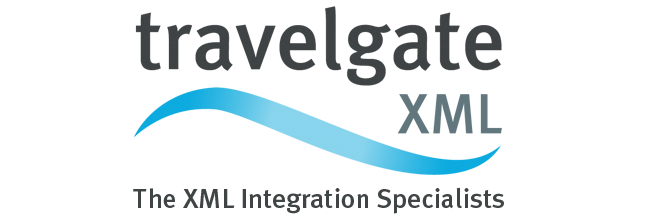Featured BizSpark Startup on Azure - XML Travelgate
XML Travelgate is a company focused on the development and maintenance of XML Integrations for the travel industry. This BizSpark team connects travel product suppliers of any kind with sellers, according to company founder Pedro Camara. Our business model is unique in the industry. We charge a monthly maintenance fee per supplier enabling businesses of any size to grow their product catalogue as the business grows. We offer the largest selection of travel products in the market for an unprecedently low price.
According to Pedro, "Our main Azure application is a web service where all of our supplier’s integrations live. We call it the XML Integrations Hub. The application is a simple gateway that forwards requests to each of our supplier’s web services adding auditing data and statistics so each and every request can be traced. It creates complete analytics data for our clients to maximize revenue."
What that means: Travel companies are actually going to know what is going on with everything in their service silos and business buckets.
Microsoft technologies that they are using in conjunction with the development of the Azure-based application:
We are basically using Windows Azure. Our application is written in vb.net and c#. As for Azure services we use:
-
- Web and Worker Roles
- WCF Communication
- Azure Storage
- Azure Queues
- Azure Blobs
- SQL Azure
- Service Bus
- Azure Scheduler
- Network Manager
- Auto-scaling and monitoring using Paraleleap’s Azure Watch
Business Questions:
Do you build for scale first, or for revenue? How are those things related in your mind? We have started the project with scaling in mind. We knew that to thrive in this business we needed scalability and stability as travel applications are heavy traffic generators. Our very first client was the second biggest Online Travel Agencies (OTA) in Spain (logitravel.com) with an annual revenue of over 500.000.000 Euros. Our predictions were that we would be processing more than 5 million requests a day in July 2013. We were a little bit short, we processed an average of 20 million requests per day during the summer 2013. Revenue is strictly connected to scalability and stability in our business. The better we scale and the more stable our application is the happier our customers are. Happy customers mean more business for us!
Do you make reasonable predictions about how you are going to achieve revenue and then test them out, or do you start with a business model and deploy it, to see if it brings in revenue?
We started with a business model and we’re trying it out. For the time being
What questions do you think a startup non-technical founder needs to answer when considering a cloud architecture for his or her startup, and I am thinking specifically here during the business model generation period?
-
- How much business do I need to cover a traditional systems structure?
- Is it worth spending money in buying underlying structure upfront?
- How expensive it would be to change from a cloud architecture to a traditional one?
- What are the benefits of using an established cloud platform like Azure as opposed to building it all from scratch?
Culture Questions:
When did you decide that you were “startup material”? I cannot say I suddenly decided I was startup material. Since very early age I´ve always done jobs ranging from typing other kids school work to building and selling computer parts. When I started my professional life having a boss always bothered me because I did not have the freedom to do what I thought I should be doing.
I always had the impression I could do it better if I did it myself. With the years I started doing freelance work more and more until it got to the point where I could dedicate myself fully to freelancing. Sometime after I hired my fist employee and setup my first company.
What impact or legacy do you hope to make in the market and in the business world?
The way we see things, the travel industry is changing from the tradition “offline” model to the new “online” model. More and more every company in the industry are developing integrations with products suppliers. Moreover many suppliers are nowadays also selling other third party products.
Presently not only retail companies buy from wholesalers, but also wholesalers buy from retailers. Everyone needs to be connected to everyone if they want to be left out. Our startup aims to cover the biggest amount of connections allowing a company of any size to integrate with another in an easy and inexpensive manner. Ultimately we offer the largest selection of travel product in the market at the same time as deeply reducing the costs of the connectivity.
Can you describe the relationship that you have had with Microsoft in building your startup?
We chose Microsoft from the beginning since it was a requirement of our client. When we needed to build our main hub where all our integrations live we chose Microsoft Windows Azure. Microsoft has helped us save in a lot of aspects from software licenses to Azure resources.
Why would an entrepreneur turn to Microsoft for help in building scale, a team, or using software?
Microsoft offers a great range of products that any startup could benefit. By using the Microsoft cloud scalability is built in the application from its very early beginnings. It also allows a startup to test its product before doing huge investments in systems and servers. Microsoft Bizspark is a great program that any startup can and should benefit.
Read on for more about the Azure solution.
Tell us about your Azure based solution.
Our solution is 100% Azure based. From its very early starts we developed for Windows Azure. It is a very scalable application deployed in 3 datacenters tied together using Azure’s Network Manager.
How is Azure implemented in your solution?
Azure is the core of our technology. Our app was planned from day 1 to take everything Azure had to offer into consideration. Please find detailed information in the attached blog post.
How did you get excited about Azure?
We got excited when we realized that all the concerns we had about scalability and future growth could be solved by using Windows Azure. It got even more exiting when we got accepted in the BizSpark Plus program and received $60.000 in Azure costs for the first year.
What were the Azure features that prompted you to decide to build on Azure?
-
- Scalability
- Service Bus
- Queues
- Microsoft is a trustworthy long established company
What advice do you have for companies that are thinking about building in the cloud?
Be very careful when coding. The better your application is coded the cheaper your monthly bill will be. Make sure your developers know the platform before they start coding. Use all the features the platform has to offer so you don’t have to re-invent the wheel. Pay attention to everything that is going on with your cloud provider. Subscribe to feeds, twitter, anything that can give you real time status information on how the platform is doing. Don’t trust the cloud, build your app knowing that sooner or later it will fail. Implement retry logic and make sure your application will still work even if some piece of underlying infrastructure is not online. Develop using interfaces so that the cloud provider is abstracted in case you need to suddenly change your path.

